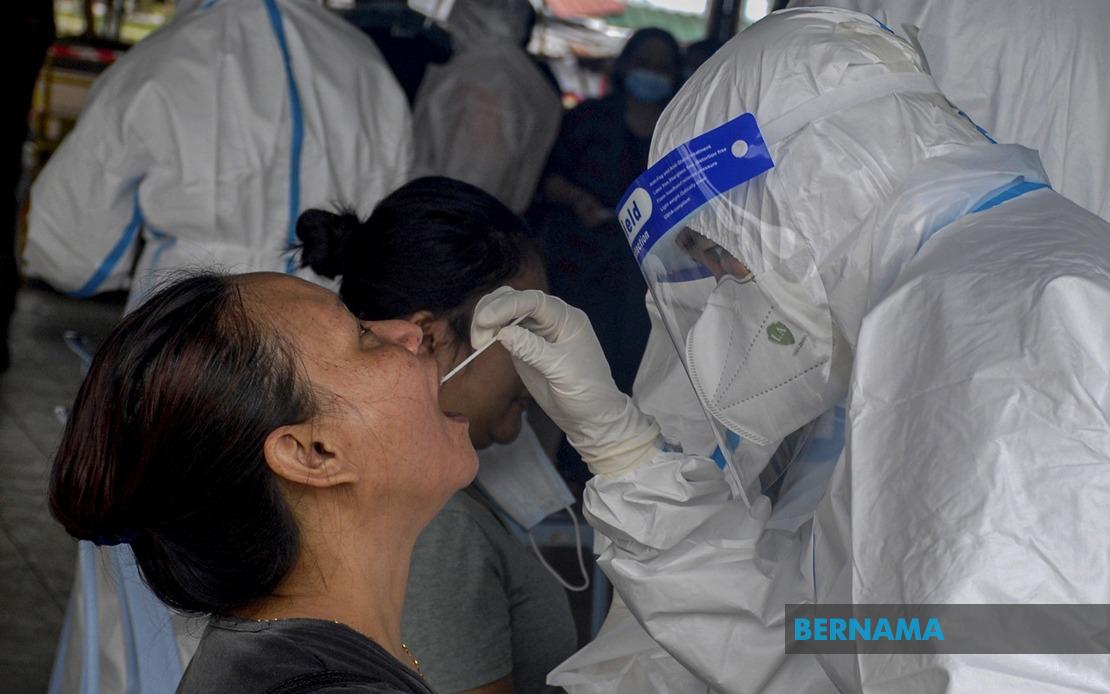Different strain of COVID-19 virus in Sarawak now - Sim
SIBU, Feb 8 -- The genome sequencing analysis of COVID-19 shows that the variant infecting Sarawakians now is different from the one detected in March to April last year, said Sarawak Local Government and Housing Minister, Datuk Seri Dr Sim Kui Hian.
The initial infection was of the Wuhan strain but when the Stutong Cluster and Keranji Tabuan Cluster emerged last month, the genome sequencing analysis done by Universiti Malaysia Sarawak (UNIMAS) showed the new strain being similar to the ones found in Indonesian and the United Kingdom (UK).
As for the Pasai Cluster which had spread widely over many parts of Sarawak like wild fire, the strains were of peninsula origin and a little bit of the UK.
However, he said the UK strain was not of the particularly fast-spreading B117 strain of the COVID-19 virus.
“It is not the particular mutation of the UK strain. It keeps on mutating. And now in the UK, they are talking about the African strain.”
Dr Sim said this during a live talk via Zoom application hosted by Sibu Municipal Council chairman, Clarence Ting Ing Horh on his Facebook page.
The talk also featured Sarawak General Hospital’s (SGH) infectious disease specialist, Dr Chua Hock Hin and head of the police Crime Prevention and Community Safety Division, DSP Ariffin Bahar who touched on the COVID-19 situation in Sarawak including Sibu.
“We still do not know yet the clinical consequences of the new variants. That may explain why in Sarawak we noticed that 40 per cent of those infected showed symptoms whereas worldwide only 20 per cent had symptoms.
“We need scientists, universities and infectious disease experts to study in what way we are different,” Dr Sim said.
Meanwhile, Dr Chua who was asked if vaccines would work on the mutated strains looking at news reports that the AstraZeneca vaccine is not effective against the South African strain, replied: “That is why we need more clinical studies to actually understand all these things.
"Only after the vaccine has been actually rolled out, we can see the real effects and if it really works or not.”
To another question, Dr Chua quashed an allegation that the government was using the people in Belaga as guinea pigs for the Pfizer and BioNTech's Comirnaty vaccine when a dry run to send the vaccine to the district was held on Jan 29.
He said the dry run was aimed at testing the ability to keep the Comirnaty vaccine at -75 degrees Celsius throughout the delivery chain, starting from the producer's location until it reached the selected medical facility.
Asked if the vaccine is safe for humans, he said: “In general, there is nothing to fear except those jabbed with it will experience some localised side effects such as headache or fever but that will go away in time.”
-- BERNAMA
HealthEdge
EXCLUSIVE

Pet Vaccination, Public Awareness And Surveillance Key Towards Rabies-free Southeast Asia - Experts
KUCHING, Dec 11 (Bernama) -- The goal of making Southeast Asia free from human rabies can be achieved through a total understanding of the disease, how it can be prevented and responsible pet ownership among communities, say experts.
read more ››IN FOCUS

TAVI KAEDAH BAIK PULIH INJAP JANTUNG TANPA PEMBEDAHAN




